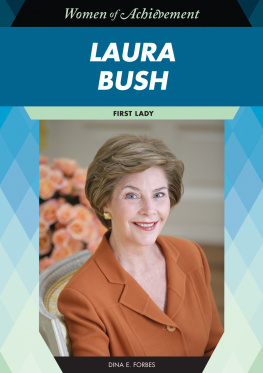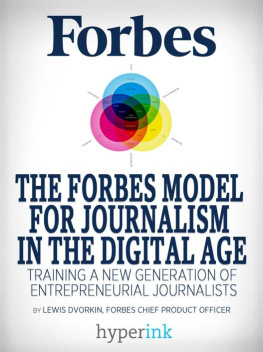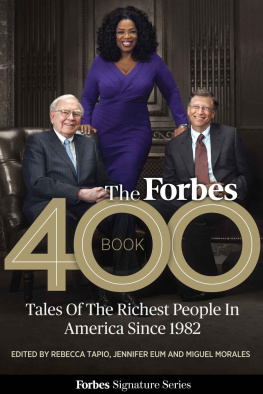A TIME OF SCANDAL
A TIME OF
SCANDAL
CHARLES R. FORBES
WARREN G. HARDING
AND THE MAKING OF THE
VETERANS BUREAU
ROSEMARY STEVENS

2016 Rosemary Stevens
All rights reserved. Published 2016
Printed in the United States of America on acid-free paper
9 8 7 6 5 4 3 2 1
Johns Hopkins University Press
2715 North Charles Street
Baltimore, Maryland 21218-4363
www.press.jhu.edu
Library of Congress Cataloging-in-Publication Data
Names: Stevens, Rosemary, 1935 author.
Title: A time of scandal : Charles R. Forbes, Warren G. Harding, and the
making of the Veterans Bureau / Rosemary Stevens.
Description: Baltimore, Maryland : Johns Hopkins University Press, 2016. |
Includes bibliographical references and index.
Identifiers: LCCN 2016010032 |ISBN 9781421421308 (hardcover : alk. paper) |
ISBN 1421421305 (hardcover : alk. paper) |ISBN 9781421421315 (electronic)
|ISBN 1421421313 (electronic)
Subjects: LCSH: Forbes, Charles R., 18781952. | Harding, Warren G. (Warren
Gamaliel), 18651923Friends and associates. | ScandalsUnited
StatesHistory20th century. | United StatesPolitics and
government19211923. | Forbes, Charles R., 18781952Trials,
litigation, etc. | United States. Veterans Bureau.
Classification: LCC E785 .S74 2016 |DDC 973.91/4092dc23
LC record available at https://lccn.loc.gov/2016010032
A catalog record for this book is available from the British Library.
Special discounts are available for bulk purchases of this book. For more information, please contact Special Sales at 410-516-6936 or .
Johns Hopkins University Press uses environmentally friendly book materials, including recycled text paper that is composed of at least 30 percent post-consumer waste, whenever possible.
CONTENTS
Illustrations follow
PREFACE
This is a story of a boy who came to America with his family in the 1880s, lived through various up-and-down adventures, served heroically in World War I, became a prominent government official, and was then the center of a major national scandalone of a cascade of political scandals in the mid-1920s. The man was Charles R. Forbes, the scandal was the Veterans Bureau scandal, and the scandal time the administration of two US presidents. Because the substance of the scandals occurred during Warren G. Hardings administration, they have come down in history as the Harding scandals. However, their exposure as full-fledged scandals occurred during the administration of Hardings successor, Calvin Coolidge. Together, the two presidencies ran from March 1921 into 1929.
The Veterans Bureau scandal broke as front-page national news in late 1923, soon after Hardings unexpected death. On its heels came the oil scandal, known as Teapot Dome, and while the first two were in play the US Department of Justice was investigated. Three men were at the center of these major scandals: Charles R. Forbes (whom Harding had appointed as the founding director of the new US Veterans Bureau), Albert B. Fall (Hardings secretary of the interior), and Harry M. Daugherty (Hardings attorney general), respectively. The three acquired a lasting label as members of Hardings Ohio Gang, who went to Washington to loot the federal treasury. When hearings on the Veterans Bureau and Teapot Dome ran at the same time in the same Senate office building, visitors to Washington could choose which drama to attend. Allegations became sensations as colorful witnesses described (in the Forbes case) bribes, plots, missing documents, excessive drinking, jumping into a pool fully dressed, greed, revelry run amok. The scandals were moral tales and public spectacles, good stories that took on a life of their own. So good that, until now, the facts of the Veterans Bureau scandal were neglected and Forbess culpability unexplored.
Colonel Forbes was convicted in federal court for conspiring with others to defraud the federal government by rigging government contracts to build hospitals for military veterans of World War I. He was branded as a criminal, shamed as a disgrace, and served time in the federal penitentiary at Leavenworth. In the public narratives of the scandals in the 1920s and afterward, Albert Fall was a man tempted and overcome by greed, but Forbes was worse than this. Here was a man willing to cheat sick and wounded American warriors out of the services they deserved. He was both a criminal and a pariah.
The personal story of Charles R. Forbes would be worth retelling as a narrative arc of rise and fall; though in life, as well see, he thrust aside his painful experiences in the 1920s and lived on to enjoy his grandchildren outside of public view. Of more importance to A Time of Scandal, Forbess experiences thread through and illuminate significant movements and themes in political life in the 1920s. As founding director of the organization now known as the US Department of Veterans Affairs, he is a necessary part of the history of veterans services in the United States. As creator of the federal system of veterans hospitals that exists to this day, he is part of the history of American hospitals and health care. He participated in efforts to bring business efficiency to government in the Harding administration, and, when he was no longer in office, he was a major character in the drama of the Harding scandals as they played out in the Coolidge years.
The Harding scandals were significant in presenting Coolidge as morally and administratively superior to Harding and the hotbed of scandal attributed to him. Revelations of scandalous behavior by government officials stimulated reforms in executive agencies, including those run by Secretaries Fall and Daugherty, and Director Forbes. As Republicans, Progressives, and Democrats, for different reasons, rallied around the cause of vilifying Harding and his administration, Forbes served as a villain in a historical narrative of the Veterans Bureau scandal that has remained unchallenged until this book.
The disparity between the casual descriptions of Forbes in the historical literature (and in popular fiction, too, as well see) and the official dimensions of his job irked me for years, while I was working on other projects. The two views did not seem to fit together. In the literature, Forbes appeared as a character in an American folktale or gangster movie rather than a high-level bureaucrat with oversight of one of the largest budgets in the federal government. The literary character called Charles or Charlie Forbes was a stereotyped crony of dubious reputation and hazy background, bandying jokes and brandishing a whiskey glass, whose narrative role was to support negative depictions of Warren Harding. More recent revisionist accounts of Harding have shown Harding as a stronger man and a more skilled politician than formerly depicted but left the secondary characters unrevised. Strings of adjectives have commonly attended Forbess description: loud, sexual (imbued with animal vitality), coarse, free-spending, heavy drinking (during Prohibition), amoral, back-slapping, rough, poker-playing, picaresque, crooked, a good-time Charlie. In 2010, a popular television series began, set in the 1920s, with a gangster character called Nucky Thompson at its center. The series, Boardwalk Empire, referred to Forbes as a well-known crook.
Descriptions of Forbes also offered contradictory messages. If, as in one variant, he was a high-living predatory fool, how did he manage to avoid detection of his crimes between 1921 and 1923? He must have been smart. If he managed to steal some $200 million or $225 million (upward of $2.8 billion in twenty-first-century terms) during his eighteen-month tenure at the Veterans Bureau, as often alleged, he must have had confederates within the bureaucracy. No associates were identified. No one in the Veterans Bureau called him a crook when the Senate investigated him after he had left office and employees were free to speak without worrying about their jobs. Did Forbes have direct access to large amounts of cash? (No, he did not.) Stories about a foolish, stumbling leader surrounded by an immoral crop of cronies are ancient and satisfying, but the character of Forbes depicted in stories about Harding does not survive the light of day. Was he framed, as he insisted, and thus a scapegoat or a dupe? Was he a figure of self-aggrandizement? A crafty operator? Was he a hard-working government official struggling to establish a complex bureaucracy in the midst of political intrigue? Or something else? I needed to conduct substantial research before any conclusions could be reached: research into his life, character, and work before the scandal cast its long shadow; into his experiences in the Harding bureaucracy; and into what happened afterward. The questions were simple: Who was Forbes? What did he do?
Next page








